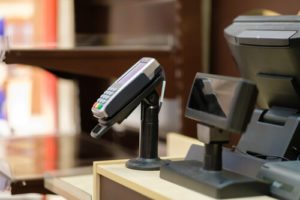Legally Reviewed By:
Brian P. Gabriel, Esquire
 In Florida, mere possession of stolen property can lead to criminal charges. Property crimes like receiving, selling, possessing, or even disposing of stolen property carry heavy penalties that vary based on the value of the property involved. These crimes may be misdemeanor or felony offenses should the property reach a specific value. If you purchase stolen property, you could face penalties if you “should have known” the property was stolen.
In Florida, mere possession of stolen property can lead to criminal charges. Property crimes like receiving, selling, possessing, or even disposing of stolen property carry heavy penalties that vary based on the value of the property involved. These crimes may be misdemeanor or felony offenses should the property reach a specific value. If you purchase stolen property, you could face penalties if you “should have known” the property was stolen.
What “Should I Have Known” was Stolen?
In order to prove that a defendant purchased stolen merchandise, the prosecution must be able to demonstrate that a “reasonable person” would have suspected that the property in question had been stolen, and thus would have steered clear. In this sense, a “reasonable person” refers to the average person; if the average person would suspect that items sold from the back of a van were likely stolen, the defendant also should have reached that conclusion. If the defendant acquired the items regardless, and the items did in fact turn out to be stolen, the defendant “should have known” that the merchandise was stolen and thus is guilty of receipt of stolen property. Jewelry, electronics, DVDs and other goods that are being disguised, sold on the side of the road, and do not contain any price tags have likely been stolen. When merchandise is purchased online, however, it is a bit more difficult to discern.
Purchasing Stolen Goods Online
Online auctions are a hotspot for stolen merchandise. Items that appear to be a great deal on eBay, Craigslist, or other marketplace websites are likely stolen, according to a report by the National Retail Federation. Statistics from the report show that up to a third of all merchandise was illegally acquired, especially items that are listed as “New with Tag” or “New in Box.” Particularly risky items are small but expensive, such as jewelry, makeup, skincare, over the counter medications and even baby formula. Thieves look for smaller items that are easier to swipe and have a high value.
Thieves prey on people looking for bargain goods, which is why an unrealistic (low) price is a huge red flag that merchandise was not legally obtained. Retail theft rings account for billions of lost profits. While consumers may not be concerned with the effects of retail theft, it’s good to be aware that retailers frequently pass these costs along to them in the form of elevated prices and fewer or less enticing discounts and sales.
Some auction sites like eBay have a unit dedicated to tracking stolen merchandise and preventing it from being listed. It is almost impossible for consumers to know with certainty whether the merchandise they are purchasing was stolen. If you have purchased stolen goods online, there is a chance the police will not come after you. They are generally placing their resources to catching the thieves who steal the merchandise and those who sell it.
In theory, one is just as liable for buying stolen goods online as if they were purchasing it from the back of a van. Yet it is difficult to prove that the consumer knew the merchandise was stolen. If the prosecution can prove that a reasonable person should have known the goods were stolen, and you are convicted of purchasing stolen goods, steep fines, jail time, restitution, and probation are possible. It is in your best interests to consult with an experienced theft attorney like Brian Gabriel of the West Palm Beach area. Call The Law Office of Gabriel & Gabriel at 561-622-5575 if you are facing charges for property crimes in South Florida, or schedule a free consultation online.



